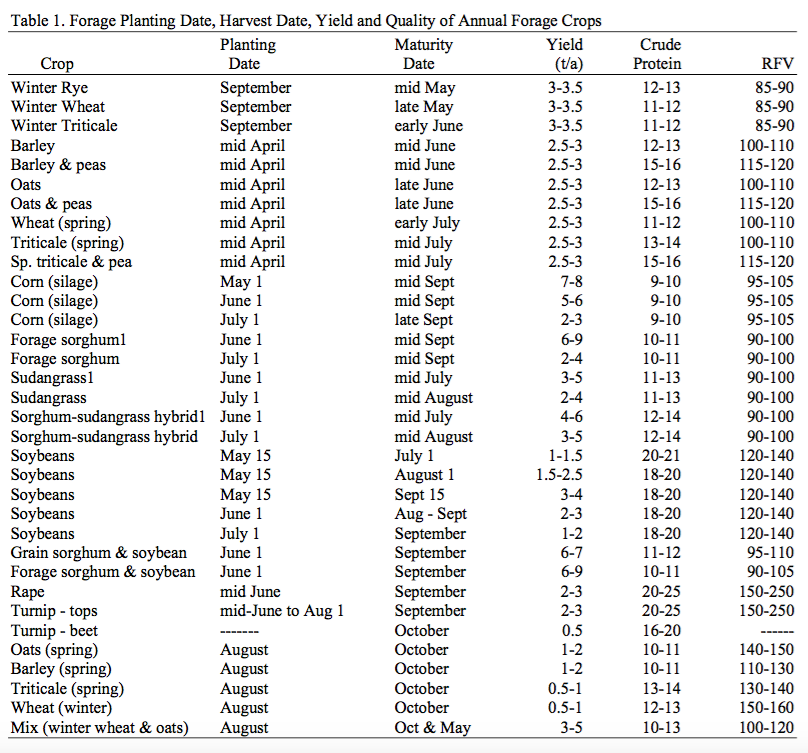NOW OPEN 8-12 ON SATURDAYS, FEB - OCT | SMALL GRAINS AND FORAGES CONFERERENCE: FEB 19 LEARN MORE
800.352.5247
- Seed Finder
- About
- Resources
- Find a Dealer
- Blue River Organic
- Viking Non-GMO
- Login
NOW OPEN 8-12 ON SATURDAYS, FEB - OCT | SMALL GRAINS AND FORAGES CONFERERENCE: FEB 19 LEARN MORE
$98.00 / 50lb Bag
| Species Name | Drilled | Broadcast/Aerial | In Mix | Approx. Seeds/lb | Seeding Date Range | Seeding Depth | Winter Kill |
|---|---|---|---|---|---|---|---|
| Organic Blue River 225 Brand BMR Sorghum-Sudangrass | |||||||
| Organic Blue River 210 Brand BMR Sorghum-Sudangrass | |||||||
| Organic Japanese Millet | 25-35 | 35-50 | 5-15 | 145,000 | Late May-July | ½ - 1 inch | Yes |
| Organic Winter Rye | 50-100 | 120-150 | 25-75 | 18,000 | Aug-Nov | ½ - ¾ inch | No |
| Organic Cover Crop Oats | |||||||
| Organic Annual Ryegrass | 15-20 | 25-30 | 4-5 | 227,000 | Mar-May, Aug-Sept | ¼ - ½ |
Brown Mid-Rib (BMR)-type warm season annual grass forages contain a BMR gene (from conventional breeding techniques) that limits production of an enzyme needed for lignin formation as plants grow. With the altered gene, less lignin forms, resulting in higher digestibility of the forage and greater animal intake. The visually-evident brown midrib is a useful indicator of the trait.
Sorghum-sudangrass is a hybrid cross between forage sorghum and sudangrass; intermediate in size and yield. Fast-growing, highly productive, multi-cut, warm-season annual grass bred to maximize summer forage. Most hybrids can grow 8′ tall if left uncut. Protein can reach 14% but has less energy than corn silage, because it lacks grain.
Best Use: Best suited for grazing, green chop, baleage, or silage.
Adaptation: Good soils, but is drought tolerant. Likes hot weather. All hybrids we sell are resistant to downy mildew and anthracnose.
Management
Usually harvested 45-55 days after seeding or when 40 inches tall, whichever comes first.
Cut 6” above ground for best regrowth. Larger stems make drying for hay more difficult than with sudangrass.
High planting rates produce finer stems which dry better with increased quality.
Manage risk for prussic acid and nitrate concentrations during drought or following frost.
Protein will decline as harvest is delayed. If planning to cut only once, energy will increase upon heading due to continued sugar formation in the sorghum stalks and leaves, and carbohydrate deposition in the developing grains.
Planting Date: Late-May – early July (soil temps 62°F+)
Seeding: 20-40 lbs/acre drilled, 25- 45 lbs/acre broadcast. Use high end of the rate for finer stems and faster drydown. Plant ¾”-1½” deep.


Have you used this product? Let us know what you think.